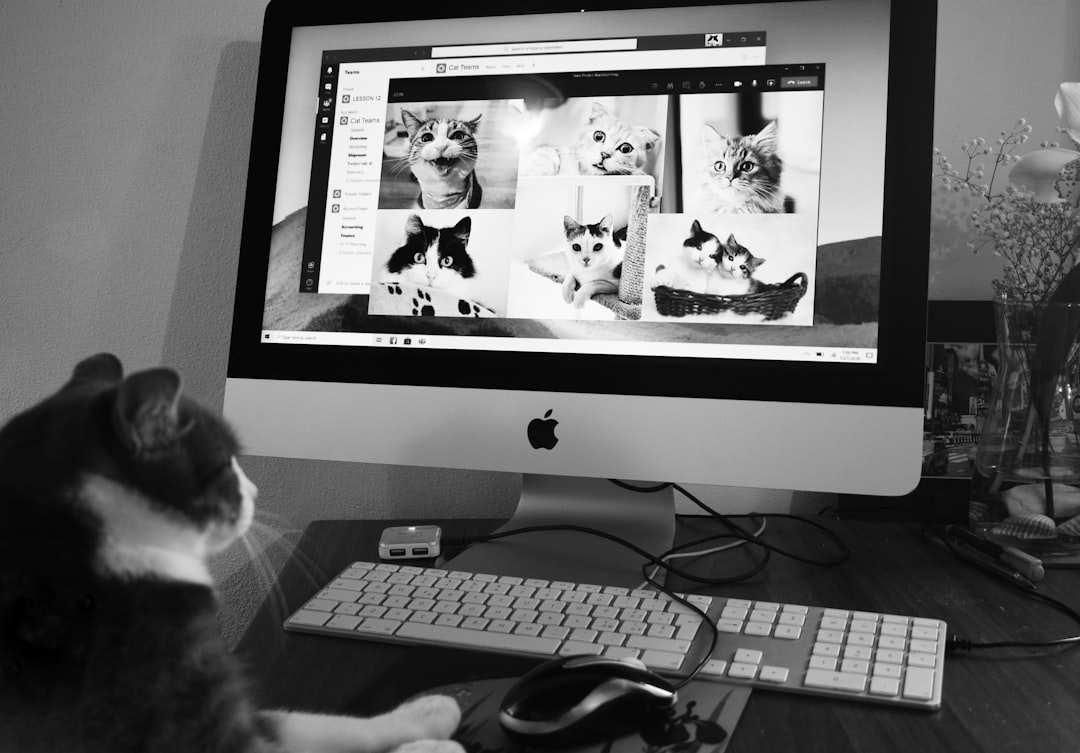As a new cat owner, understanding the essentials of feeding kittens is crucial for their growth and development. Proper nutrition sets the foundation for their overall health, ensuring they thrive during their formative months. With various kitten food options available, it can be overwhelming to choose the right one. Additionally, establishing a feeding schedule and being aware of common mistakes can greatly impact your kitten’s well-being. By following expert advice and recognizing the signs of potential health issues, you can provide the best care for your furry friend.
Understanding the Nutritional Needs of Kittens
Feeding kittens requires a keen understanding of their unique nutritional needs. Kittens grow rapidly, and their diet must support this growth. Here are some key components to consider while feeding kittens:
- Protein: Kittens need high-quality protein for muscle development. Look for foods where a real meat source is the first ingredient.
- Fat: Essential fatty acids, particularly DHA, are crucial for brain and eye development. Ensure their food has adequate fat content.
- Vitamins and Minerals: A well-balanced diet will contain the right vitamins and minerals to promote bone health and overall immunity.
- Caloric Intake: Kittens typically require more calories per pound of body weight compared to adult cats.
Comparison Table of Nutritional Requirements:
| Nutrient | Kittens | Adult Cats |
|---|---|---|
| Protein | 30-40% of caloric intake | 25-30% of caloric intake |
| Fat | 20-25% of caloric intake | 15-20% of caloric intake |
| Calories/Kg | Higher (more energy needed) | Lower |
By prioritizing these nutritional aspects, you can ensure that your kittens receive a balanced diet necessary for healthy growth. Remember, understanding the nutritional needs of kittens is the first step to successful feeding kittens!
Choosing the Right Kitten Food
When it comes to feeding kittens, selecting the right food is crucial for their growth and development. Kittens require a diet rich in specific nutrients to support their high energy levels and rapid growth.
Key Considerations for Choosing Kitten Food:
- Life Stage: Ensure the food is specifically formulated for kittens. Adult cat food lacks the necessary nutrients for developing bodies.
- Quality Ingredients: Look for high-quality protein sources (like chicken or fish) listed as the first ingredient. This supports muscle growth and overall health.
- Nutritional Content: Check for essential nutrients:
- Taurine: Vital for heart and eye health.
- DHA: Supports brain development.
- Vitamins and Minerals: A well-rounded blend promotes a strong immune system.
Wet Food vs. Dry Food
| Feature | Wet Food | Dry Food |
|---|---|---|
| Hydration | Higher moisture content | Lower moisture content |
| Caloric Density | Generally lower | Higher calorie density |
| Convenience | Can spoil quickly | Long shelf life |
Ultimately, balance is key. Mixing wet and dry food can provide varied texture and taste while meeting the dietary needs of your kitten. Ensure your choices promote healthy and enjoyable feeding kittens experiences.
Wet Food vs. Dry Food: Pros and Cons
When it comes to feeding kittens, choosing between wet and dry food is crucial; both options have their unique benefits and drawbacks.
Wet Food
Pros:
- Higher Moisture Content: Provides hydration, which is essential for kittens.
- Palatable: Tends to be more flavorful, attracting picky eaters.
- Easier to Chew: Soft texture suits young, developing teeth.
Cons:
- Shorter Shelf Life: Once opened, it spoils quickly and must be refrigerated.
- Higher Cost: Generally pricier than dry options.
- Dental Health: Lower abrasive action may not promote dental hygiene.
Dry Food
Pros:
- Convenience: Longer shelf life and easier storage.
- Cost-Effective: More economical than wet food.
- Dental Benefits: Promotes chewing, which may help reduce plaque.
Cons:
- Dehydration Risk: Lower moisture content can lead to hydration issues.
- Less Appealing: May not attract kittens as much, depending on preferences.
- Potential Overeating: Kittens might eat more due to readily available kibble.
In summary, both wet and dry food can suit feeding kittens. Consider your kitten’s health, preferences, and your lifestyle when making your choice.
Establishing a Feeding Schedule
Establishing a consistent feeding schedule is crucial when feeding kittens. Kittens thrive on routine, which helps them feel secure and promotes healthy eating habits. Here’s how to create an effective feeding schedule:
Frequency: Kittens need frequent meals throughout the day. Aim for:
- Up to 4 meals per day for kittens under 6 months
- 2-3 meals per day for kittens aged 6-12 months
Portion Control: Measure each meal based on your kitten’s age and weight. Consult your kitten food packaging for specific recommendations, ensuring you avoid overfeeding or underfeeding.
Timing: Choose regular intervals that fit your daily routine. For example:
- Breakfast: 7 AM
- Midday: 12 PM
- Dinner: 6 PM
- Evening Snack: 9 PM
Adjustments: Keep an eye on your kitten’s weight and adjust meal sizes or frequencies as they grow.
By sticking to a feeding schedule, you can effectively support your kitten’s development and well-being. Remember, when feeding kittens, consistency is key!
How Much to Feed Your Kitten
Determining the right amount of food when feeding kittens is crucial for their growth and development. Kittens have specific nutritional needs based on their age, weight, and activity level. Here’s a simple guideline to follow:
- Age:
- 4 to 6 weeks: 4 to 6 meals per day
- 6 to 12 weeks: 3 to 4 meals per day
- 3 to 6 months: 3 meals per day
- Weight:
- Use the feeding guidelines on your kitten food packaging. For instance:
| Weight of Kitten | Recommended Daily Amount (Wet & Dry) |
|---|---|
| 2 pounds | 1/4 can + 1/4 cup |
| 4 pounds | 1/2 can + 1/2 cup |
| 6 pounds | 3/4 can + 3/4 cup |
Tips for Feeding Kittens:
- Monitor their weight regularly and adjust food portions accordingly.
- Always provide fresh water.
- Avoid free feeding, which can lead to overeating.
By understanding how much to feed your kitten, you ensure they receive the right nutrients and maintain a healthy growth trajectory. Remember, proper feeding is key when feeding kittens!
Common Feeding Mistakes to Avoid
When it comes to feeding kittens, new cat owners often make several common mistakes that can hinder their kitten’s growth and health. To ensure your furry friend thrives, watch out for these pitfalls:
Feeding Adult Cat Food: Kittens require food specifically formulated for their developmental needs. Adult cat food lacks essential nutrients needed for growth.
Inconsistent Feeding Schedule: Establish a consistent schedule. Kittens benefit from multiple smaller meals throughout the day instead of one or two large ones.
Ignoring Portion Control: Overfeeding can lead to obesity. Measure the recommended daily amount according to your kitten’s weight and age.
Using Human Food as Treats: Many human foods are harmful to cats. Stick to kitten-specific treats to avoid digestive issues.
Not Providing Fresh Water: Cats require access to clean water at all times. Dehydration can lead to serious health issues.
By being mindful of these mistakes while feeding kittens, you’ll help ensure they grow into healthy, happy adult cats.
Transitioning to Adult Cat Food
Transitioning from kitten food to adult cat food is a crucial step for every new cat owner. As your kitten grows, their nutritional requirements change. Here’s how to make the switch smoothly:
Timing: Generally, start transitioning around 12 months of age. Consult your vet for specific guidelines based on your kitten’s breed and health.
Gradual Transition: Mix the current kitten food with adult food over 7-10 days to avoid digestive upset:
- Days 1-3: 75% kitten food, 25% adult food
- Days 4-6: 50% kitten food, 50% adult food
- Days 7-10: 25% kitten food, 75% adult food
- After 10 days: 100% adult food
Monitor Health: Keep an eye on your cat’s appetite and stool consistency. If you notice any issues, adjust the transition plan accordingly.
Importance of Quality: When selecting adult cat food, ensure it contains high-quality protein and essential nutrients, just like when you started feeding kittens.
Successful transitioning helps maintain your cat’s health and energy levels, so stay attentive during this process!
Supplements: Do Kittens Need Them?
When it comes to feeding kittens, the right nutrition is crucial for their growth and development. While most commercial kitten foods provide a balanced diet, some circumstances may warrant the addition of supplements.
Here are a few key points to consider:
- Balanced Diet: Generally, high-quality kitten food meets all nutritional requirements without the need for supplements.
- Specific Needs: Supplements may be necessary if:
- Your kitten has health issues.
- They are underweight or have a poor appetite.
- They are recovering from illness or surgery.
Types of Supplements:
- Vitamins: Help with immune function and overall health.
- Minerals: Essential for bone growth and dental health.
- Omega Fatty Acids: Aid in skin health and coat quality.
Important Tips:
- Always consult with a veterinarian before adding any supplements while feeding kittens.
- Over-supplementation can lead to health issues; moderation is key.
In summary, while most kittens thrive on a complete diet, certain situations may require additional nutritional support. Always prioritize a vet’s guidance in these matters to ensure your kitten’s health is well taken care of.
Signs of Health Issues Related to Diet
When it comes to feeding kittens, paying close attention to their health is crucial. Several signs may indicate problems stemming from their diet:
- Poor Coat Condition: A dull, flaky coat can signify nutrient deficiencies.
- Weight Fluctuations: Sudden weight loss or gain often indicates an imbalance in feeding.
- Digestive Issues: Frequent diarrhea or vomiting points to potential allergies or intolerances in their food.
- Increased Thirst: Excessive drinking may signal kidney issues or a dry diet lacking moisture.
- Lethargy: A lack of energy can relate to inadequate nutrients or calories.
To maintain the best health for your kitten, monitor their well-being continually. If you notice any of these symptoms, it’s vital to reassess their diet and consider if there may be any nutritional gaps due to your current feeding routine. Early detection of dietary-related health issues ensures that your kitten grows up healthy and strong. Always consult your veterinarian if you have concerns about feeding kittens or notice any alarming signs.
Consulting a Veterinarian for Dietary Advice
When it comes to feeding kittens, consulting a veterinarian ensures you provide the best nutrition tailored to your kitten’s specific needs. Here’s why seeking professional guidance is crucial:
- Personalized Diet Plans: A vet can assess your kitten’s age, breed, and health condition to recommend the most suitable diet.
- Nutritional Analysis: They can evaluate the nutritional content of various kitten foods, helping you make informed choices.
- Growth Monitoring: Regular check-ups can track your kitten’s growth and adjust dietary recommendations accordingly.
- Addressing Health Issues: If your kitten shows signs of allergies or digestive problems, your vet can suggest alternative food options or supplements.
Ultimately, proper feeding kittens is not just about choosing food; it’s also about continuous support from a knowledgeable professional. Establishing a relationship with your veterinarian will empower you to ensure your furry friend remains healthy and thriving.



